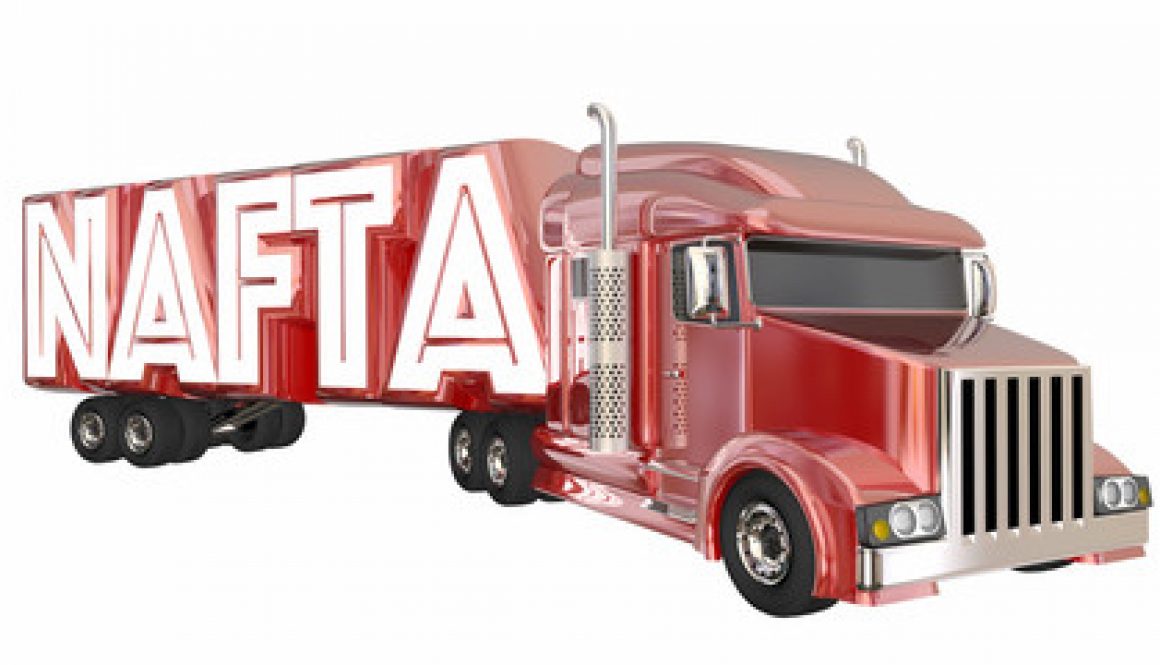After The NAFTA – Trade Talks Continue
After The NAFTA – Trade Talks Continue
At the end of the fourth round of negotiations, the three countries involved in the NAFTA trade talks released a joint statement that their efforts to modernize the accord will in all likelihood extend into the first four months of 2018. The goal that they have set for themselves is to finish their deliberation prior to the Mexican presidential election, which will occur at the beginning of July. With these extended talks comes the question of what would trade be like after the NAFTA?
After The NAFTA?
Negotiators from Mexico, the United States and Canada assert that they hope that the accord will be “mended” and not broken. Since the first year of the NAFTA in 1004, United States trade with Mexico and Canada has grown by a factor of three. Commerce between the United States’ and its two North American trading partners has multiplied at a greater pace than trade with the remainder of the world. At the conclusion of the fourth round of NAFTA negotiations, however, trade officials attest that there are “significant conceptual gaps” in the bargaining strategies of each country. Given the amount of uncertainty created by the continuing negotiations, interested parties are conjecturing what a post-North American Free Trade Agreement world would look like.
A post-NAFTA period would be characterized by an increase in the cost of goods purchased from Mexico for consumers. The median tariff rate for imports into the United States will be 2.7%, while the average applicable rate for Mexico of duty for goods entering Mexico will be 4.6% with some products exceeding 35%. Items entering into Canadian territory would be hit with an average 2.4 percent import tax. If the free trade talks fail, duties will be those that have been determined by the World Trade Organization’s (WTO) Most Favored Nation (MFN) rules. Despite the fact that these taxes may appear to be modest, the effect that they would have on the supply chains in some industries, most notably automotive, would be significant.
Officials in Canada and Mexico view the Trump’s NAFTA rhetoric more as a tactic for negotiation and effort to gain leverage than a serious move to leave a trade scheme that has broad support in agricultural states and other parts of Trump’s base of voters.
Although the Trump administration has spoken negatively about the NAFTA since before the inauguration, it not likely that the agreement will be canceled. A full break from the trade accord would result in adverse consequences in many sectors, most notably in the automotive and agricultural.
Agribusiness and The NAFTA Trade Talks
The NAFTA has broadened access to the Canadian and Mexican markets for other farm products, as well has resulted in a boost of the export of beef produced in the US to Mexico. Overall, the NAFTA has produced good results for the US agricultural sector. The US ran a healthy twenty-billion-dollar trade surplus in agricultural products with Mexico in 2016. If the NAFTA agreement is nullified many key commodities would see trade limiting tariffs imposed on their import into Mexico. Among these are pork carcasses would face a duty of twenty percent, and smoked pork bellies would see a duty of ten percent levied. Also, wheat would have 15 percent tariff charged, beef would fall into a twenty-five percent rate, and potatoes and chicken and both would be charged a hefty seventy-five percent duty.
American farmers are watching the NAFTA trade talks with great interest. This is the case because Canada and Mexico are two of the largest consumers of the United States’ agricultural products. A case in point is that Mexico is the number one foreign buyer of US produced soybeans and corn. Prior to the dawn of the NAFTA, the Mexican market was completely closed to American growers of the former.
Farmers are worried that a demise of the NAFTA trade talks would do damage as regards to the profitable new markets for their exports that the North American Free Trade Agreement has produced. Concerns arise about how trade will continue after the NAFTA.
THE AUTO INDUSTRY AND NAFTA TRADE TALKS
Despite the fact that there are some complicated issues that are now being examined by trade officials from the three countries, the US is not moving to exit from the NAFTA. Among the biggest issues that confront Mexico, the US, and Canada deals with the rules of origin for the three countries’ automotive industry. At present, to be categorized as “originating” in the NAFTA region 62.5% of the total value of a vehicle must made up of inputs of components manufactured in the three countries. In the NAFTA trade talks, the lead US negotiator, Robert Lighthizer, has communicated that the Donald Trump’s administration would like this number to increase to 85%. Some NAFTA watchers, however, believe that upping content requirements be harmful to the industry. Today, forty-percent of the value of vehicles produced within the NAFTA bloc is in United States supplied content and efforts are underway to increase that to 50% being manufactured in the United States.
Trade After The NAFTA Would Result in U.S. Job Loss
The American Automotive Policy Council, it has been concluded in a recent study that “The Trump administration’s push to change the automobile rules in North America will lead job loss and higher costs for manufacturers.” In the opinion of experts at the Motor Equipment Manufacturers Association, jacked up costs resulting from new tariffs will “lower demand for costly technology and safety features.” Changing the rules of origin for the automotive industry, according to the Boston Consulting Group could have a negative effect on up to twenty-four thousand jobs. Also, a Impactecon, another American research firm, has concluded studies that predict even greater job losses if the NAFTA accord is not successfully renegotiated. According to the Impactecon, “the United States would lose 256,000 net jobs,” and the “most severe impact” would be on lower rungs of employment. Additionally, “Mexico would lose 953,000 net jobs, and Canada would lose 120,000.” Since the beginning of the NAFTA, however, the automobile has benefited from efficiencies through the building of intricate international supply chains. Because of this, most experts on the subject of the NAFTA trade talks believe that the US, Canada and Mexico will resolve their disagreements and that the pact will remain in place, even though concerns remain about trade after the NAFTA.
For a continuing series of information on NAFTA subjects the reader is invited to review the blog at our parent company, http://tecma.com.




